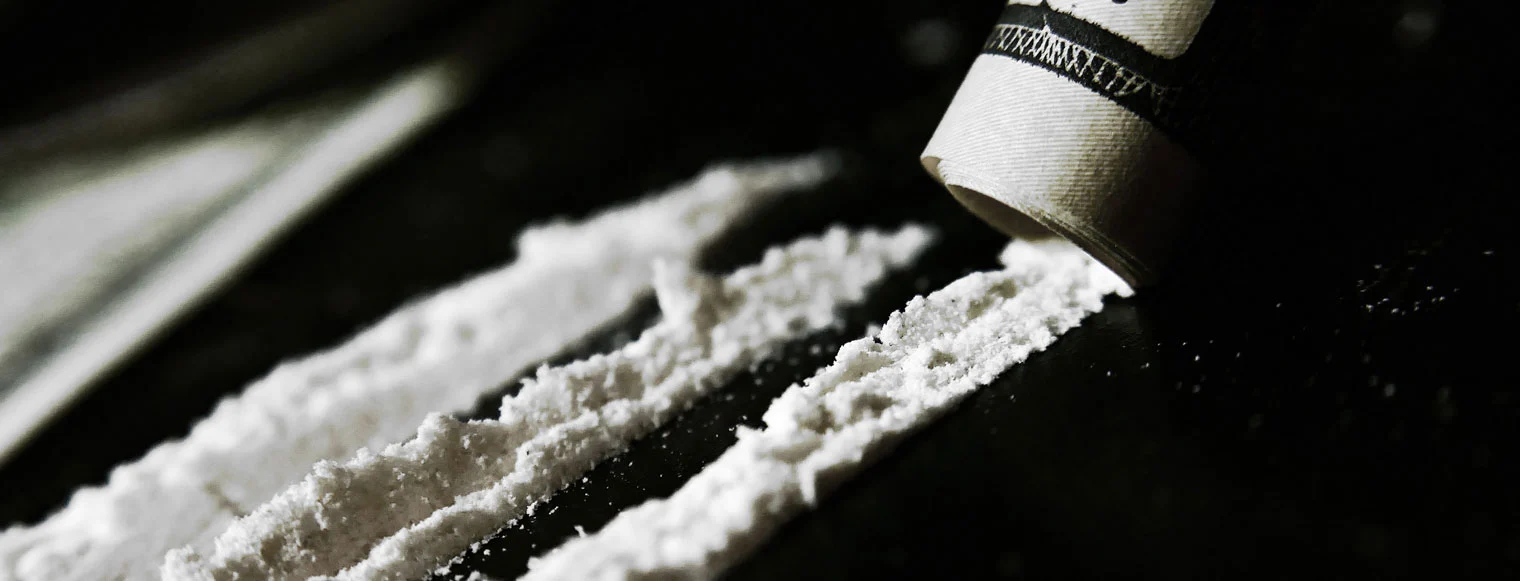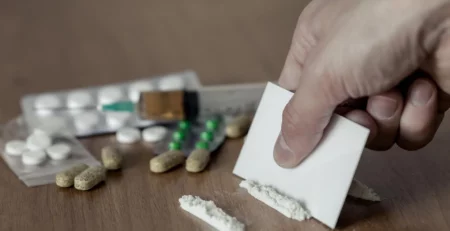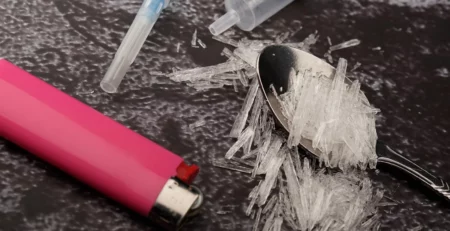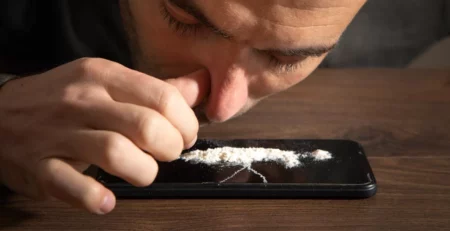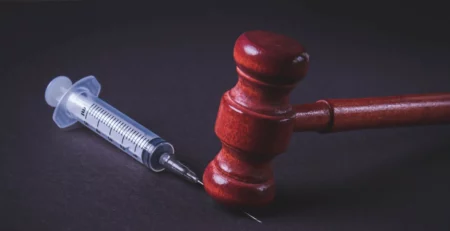Why Do People Rub Cocaine On Their Gums?
Gumming Cocaine and Oral Issues Caused by Cocaine Abuse
You may have seen it in the movies – people who use cocaine by rubbing the white powder on their gums. Or maybe you’ve noticed a loved one doing this and been concerned.
Perhaps you’ve even asked yourself: Why do people rub cocaine on their gums? Cocaine is a powerful stimulant – this use is a potentially fatal method of cocaine abuse that can lead to significant oral health issues.
Icarus Behavioral Health Nevada is a leader in helping people recover from the effects of cocaine use. We take a holistic approach to client care. We can assist clients with every phase of recovery from cocaine addiction.
From managing withdrawal symptoms to connecting with oral healthcare providers, we have had a firsthand look at the ravages that often arise when people snort cocaine powder, inject it, or rub it on their gums.
Please continue reading to learn about the issues that can start when people rub cocaine on their gums and other information on cocaine abuse.
Why Do People Rub Cocaine on Their Gums?

Gumming, or rubbing cocaine powder on the gums, is a method some users rely on for two reasons. They (a) want to test the purity before the purchase of or use of cocaine. Or (b), they want to feel a cocaine high almost immediately.
The Numbing Sensation Can Be a Quality Test of the Cocaine Powder
Rubbing cocaine on the gums causes a numbing sensation around the gums and in the lower nasal cavity. Many believe that the intensity of this numbing effect shows how pure or potent the cocaine powder might be. More numbing often indicates a more potent stimulant effect.
Cocaine Use by Gumming Leads to Faster Absorption Through the Blood Vessels
The gums have many blood vessels, enabling cocaine absorption into the body quickly. This speedier absorption means the person can get high faster than smoking or snorting cocaine.
Get Effective Cocaine Detox and Rehab Options
Street Dealers Lead People to Believe That Gumming Is Safe
Indigenous tribes in South America have relied on the leaves of the coca plant to ease jaw pain and toothaches for centuries. It’s their natural local anesthesia used for valid medical purposes in remote areas where tribe members don’t have access to medical care.
Cocaine dealers twist this backstory into “proof” that gumming is safe. But here is what cocaine dealers don’t tell their buyers, especially those new to cocaine or crack cocaine.
The unprocessed, pure coca leaves South American native people use in poultices or topical remedies are far less potent than cocaine processed for distribution on the streets of the United States. The cultural use of cocaine by Indigenous people differs vastly from the abuse of cocaine and crack cocaine as a street drug.
When snorting cocaine or if you smoke cocaine processed in a lab, you are consuming illegal drugs far more potent and potentially dangerous than the amount in a coca leaf.
How Does Cocaine Cause Serious Tooth Decay and Gum Disease?

Here is why gumming cocaine is such a problem for dental health:
Cocaine Use Can Lead to Gum Problems and Tooth Loss
Cocaine is a vasoconstrictor. That means that it leads to constricted blood vessels in the gums. While that means the cocaine effects are felt faster, it also causes the eventual breakdown of gum tissue. Once the gums have extreme infection or deterioration, they no longer provide stability and tooth loss occurs.
Tooth Decay Is One of the Long Term Effects of Cocaine Addiction
Cocaine hydrochloride, the powdered form, is an acidic substance with a pH of about 4.5. Cocaine’s effects on the mouth and mucous membranes can be devastating.
The acidity can break down tooth enamel, leading to eventual destruction. Weakening tooth enamel results in tooth loss. Losing teeth can be traumatizing and cause self-esteem issues, leading to further even more use of cocaine and other drugs.
Reduced Blood Flow in the Mouth Causes Dry Mouth
As mentioned before, so much cocaine use, especially gumming, reduces blood flow in the mouth. Narrowing of the vessels also restricts the salivary glands, resulting in a dry mouth.
It can also lead to a painful condition called dry socket, which delays the healing after losing a tooth. This condition leaves the person at an increased risk for dental infections after extractions or other certain surgeries.
Cocaine, Teeth Grinding, and Jaw Clenching (Bruxism)
Cocaine stimulates the brain circuits, causing involuntary body responses like muscle tension that causes jaw clenching or grinding the teeth. These behaviors cause pain in the jaw’s joints and muscles and deteriorate tooth enamel to cause eventual erosion.
What Else Can Using Cocaine Lead To?

Cocaine abuse, including mixing cocaine with other substances or cocaine binges, can lead to severe physical and mental health issues. Here are some of the long-term effects of cocaine use:
- Higher risk of bloodborne diseases or collapsed veins, especially when people inject drugs with infected partners.
- Substance use disorders, requiring professional care to end struggling with drug abuse.
- Hepatitis C, especially when using shared or dirty needles.
- High blood pressure, sometimes leading to a heart attack.
- Nosebleeds and loss of smell, especially when snorting cocaine.
- Severe paranoia, sometimes with violent behavior or emotional outbursts.
- Damage to the nerve cells, a precursor to nerve damage and chronic pain.
- Cocaine withdrawal symptoms when they try to quit, making quitting drug use challenging without professional assistance.
People who have these symptoms are also at a heightened risk for many health complications. If these describe you or a loved one, it’s time to connect with Icarus Nevada for the professional support it will take to get them back on the right path.
Know the Signs of a Cocaine Overdose

Can a person overdose by gumming? Yes! In fact, the quick absorption makes an overdose a distinct possibility when they gum as opposed to smoking rock crystal. To be clear, both are dangerous. The National Institute on Drug Abuse (NIDA) warns of the danger, especially with the fentanyl-laced products that have recently hit the streets.
Here are some of the cocaine overdose signs to watch out for:
- High blood pressure, elevated heart rate, heart attack
- High body temperature
- Nausea, vomiting
- Tremors, seizures
- Dilated pupils
- Paranoia, delusions
- Hallucinations
- Stroke
- Difficulty breathing
- Confusion, delirious
- Sweating
- Chills
A person struggling with cocaine has been taking increasingly higher doses to get the same euphoria due to increased drug abuse. All it takes to overdose is that one time that “tips the scale” from a high to a medical emergency.
Call 911 immediately and follow the instructions the dispatcher will give you. Be honest with first responders about the cocaine use. Changing the story to “help” the person will have the opposite effect and may further endanger their life.
Up To 100% of Rehab Costs Covered By Insurance – Call Now!
Connect With Icarus Nevada to End Cocaine Abuse and Get Support
Icarus Behavioral Health in Nevada offers those struggling with cocaine addiction compassionate, comprehensive care. Our cocaine rehab program has helped many end the nightmare and move forward, living a clean and sober life.
If you are ready to stop cocaine use, you will be in the best hands. Give us a call today for immediate assistance.

